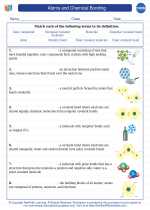Nuclear Weapon
A nuclear weapon, also known as an atomic bomb or a nuke, is an explosive device that derives its destructive force from nuclear reactions, either fission (fission bomb) or a combination of fission and fusion (thermonuclear weapon). These reactions release an enormous amount of energy from relatively small amounts of matter and have the potential to cause widespread and devastating destruction.
History of Nuclear Weapons
Nuclear weapons were first developed during World War II, and the first successful detonation of a nuclear weapon occurred on July 16, 1945, in the Trinity test in New Mexico. The United States subsequently used nuclear weapons against the Japanese cities of Hiroshima and Nagasaki in August 1945, leading to their surrender and the end of World War II. Since then, nuclear weapons have been a source of global concern due to their destructive power and the potential for catastrophic consequences if used in warfare.
How Nuclear Weapons Work
Nuclear weapons operate based on the principles of nuclear reactions. In a fission bomb, the nucleus of an atom is split into smaller parts, releasing a large amount of energy. In a thermonuclear weapon, the energy from a fission reaction is used to trigger a fusion reaction, which releases even more energy. The explosive power of nuclear weapons is measured in terms of their yield, which is the amount of energy released by the detonation.
Effects of Nuclear Weapons
The detonation of a nuclear weapon produces a variety of devastating effects, including blast, heat, and radiation. The blast wave can destroy buildings and infrastructure over a wide area, the intense heat can cause fires and severe burns, and the radiation can lead to long-term health effects and environmental contamination. The combined effects of a nuclear explosion can result in widespread destruction and loss of life.
Global Concerns and Treaties
The proliferation of nuclear weapons and the potential for their use in conflicts have led to international efforts to control and reduce their spread. The Treaty on the Non-Proliferation of Nuclear Weapons (NPT) is a key international agreement aimed at preventing the spread of nuclear weapons and promoting disarmament. Additionally, there have been efforts to negotiate arms control agreements and reduce the number of nuclear weapons held by major powers.
Study Guide
When studying nuclear weapons, it is important to understand the scientific principles behind nuclear reactions, the historical development of nuclear weapons, their potential effects, and the global efforts to control their proliferation. Key topics to focus on include the difference between fission and fusion reactions, the impact of nuclear weapons on warfare and geopolitics, and the ethical considerations surrounding their use. Additionally, it is important to be familiar with the major treaties and agreements related to nuclear non-proliferation and disarmament.
.◂Chemistry Worksheets and Study Guides High School. Atoms and Chemical Bonding
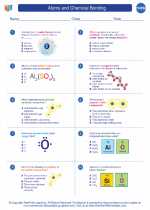
 Worksheet/Answer key
Worksheet/Answer key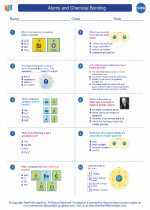
 Worksheet/Answer key
Worksheet/Answer key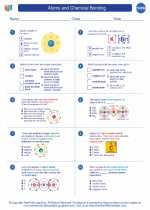
 Vocabulary/Answer key
Vocabulary/Answer key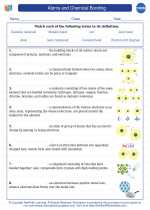
 Vocabulary/Answer key
Vocabulary/Answer key